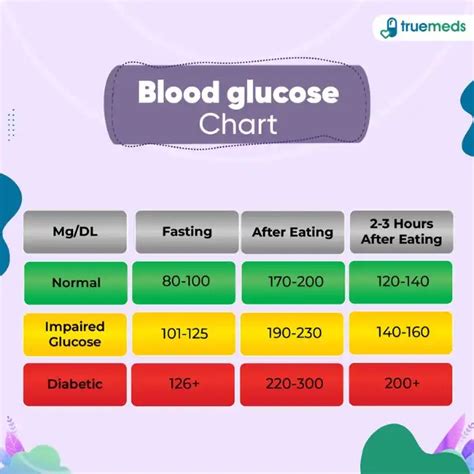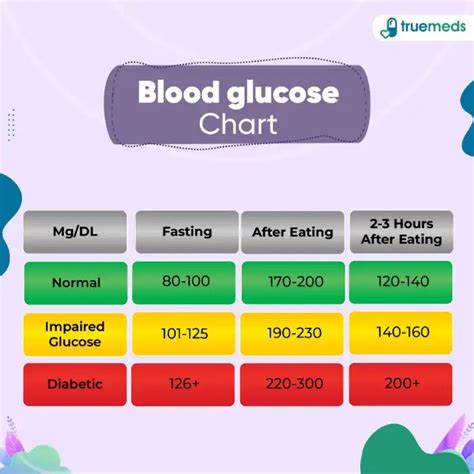Intro
Maintaining a normal sugar level is crucial for adults to prevent the onset of various health complications, including diabetes, heart disease, and stroke. Blood sugar levels refer to the amount of glucose present in the blood, and it is essential to keep them within a specific range to ensure proper bodily functions. The importance of monitoring and managing blood sugar levels cannot be overstated, as it has a significant impact on overall health and wellbeing. In this article, we will delve into the world of blood sugar levels, exploring what constitutes a normal range, the factors that influence it, and the steps that can be taken to maintain a healthy balance.
The human body relies on glucose as its primary source of energy, and it is obtained from the food we consume. The digestive system breaks down carbohydrates into glucose, which is then absorbed into the bloodstream. The pancreas plays a vital role in regulating blood sugar levels by producing insulin, a hormone that facilitates the entry of glucose into cells. When blood sugar levels rise, the pancreas releases insulin to help cells absorb the glucose, thereby lowering blood sugar levels. Conversely, when blood sugar levels drop, the pancreas releases glucagon, a hormone that stimulates the liver to release stored glucose into the bloodstream.
Understanding the concept of blood sugar levels is vital for adults, as it can help prevent the development of chronic diseases. The American Diabetes Association (ADA) recommends that adults aim for a blood sugar level of less than 100 mg/dL after an overnight fast and less than 140 mg/dL two hours after meals. However, it is essential to note that these values may vary depending on individual factors, such as age, medication, and overall health. Factors such as diet, physical activity, and stress levels can also impact blood sugar levels, making it crucial to adopt a holistic approach to maintaining a healthy balance.
What Is A Normal Sugar Level For Adults

The importance of maintaining a normal sugar level cannot be overstated, as it can help prevent the development of chronic diseases. High blood sugar levels can damage blood vessels, nerves, and organs, increasing the risk of heart disease, stroke, and kidney disease. Additionally, high blood sugar levels can lead to the development of conditions such as neuropathy, retinopathy, and nephropathy. On the other hand, low blood sugar levels can cause symptoms such as shakiness, dizziness, and confusion, which can be debilitating and even life-threatening if left untreated.
Factors That Influence Blood Sugar Levels

Medications such as steroids, certain antidepressants, and blood pressure medications can also impact blood sugar levels. Additionally, certain medical conditions, such as polycystic ovary syndrome (PCOS), Cushing's syndrome, and hypothyroidism, can affect blood sugar levels. It is essential to work with a healthcare provider to identify any underlying factors that may be influencing blood sugar levels and develop a personalized plan to maintain a healthy balance.
Role Of Diet In Maintaining Normal Sugar Levels
A healthy diet plays a vital role in maintaining normal sugar levels. A diet rich in whole foods, such as fruits, vegetables, whole grains, lean proteins, and healthy fats, can help regulate blood sugar levels. Foods that are high in fiber, such as legumes, nuts, and seeds, can slow down the digestion and absorption of glucose, preventing blood sugar spikes. Additionally, foods that are rich in protein and healthy fats, such as lean meats, fish, and avocados, can help regulate blood sugar levels by increasing insulin sensitivity and glucose uptake in the muscles.How To Maintain Normal Sugar Levels

Importance Of Regular Monitoring
Regular monitoring of blood sugar levels is crucial for maintaining normal sugar levels. A glucometer or continuous glucose monitor can help track blood sugar levels, providing valuable insights into how diet, physical activity, and stress levels impact blood sugar levels. Regular monitoring can also help identify any fluctuations in blood sugar levels, allowing for prompt corrective action to be taken.Complications Of High Blood Sugar Levels

It is essential to take high blood sugar levels seriously and work with a healthcare provider to develop a personalized plan to maintain normal sugar levels. Regular monitoring, a healthy diet, regular physical activity, and stress management can all help prevent the development of complications associated with high blood sugar levels.
Prevention And Treatment Options
Prevention and treatment options for high blood sugar levels depend on the underlying cause and severity of the condition. Lifestyle modifications, such as diet and exercise, can help regulate blood sugar levels, while medication may be necessary for those with diabetes or prediabetes. In some cases, insulin therapy may be required to help regulate blood sugar levels.Conclusion And Next Steps

We invite you to share your thoughts and experiences on maintaining normal sugar levels in the comments section below. Have you struggled with high blood sugar levels or have you found success with a particular diet or exercise routine? Share your story and help others who may be facing similar challenges. Additionally, if you found this article informative and helpful, please share it with your friends and family on social media.
What is a normal blood sugar level for adults?
+A normal blood sugar level for adults is typically defined as a fasting blood glucose level of less than 100 mg/dL and a postprandial (after meal) level of less than 140 mg/dL.
What factors can influence blood sugar levels?
+Factors that can influence blood sugar levels include diet, physical activity, stress levels, and medication. A diet high in carbohydrates, sugar, and saturated fats can cause blood sugar levels to rise, while a diet rich in fiber, protein, and healthy fats can help regulate blood sugar levels.
How can I maintain normal sugar levels?
+Maintaining normal sugar levels requires a holistic approach that incorporates diet, physical activity, stress management, and regular monitoring. Eating a balanced diet, engaging in regular physical activity, practicing stress-reducing techniques, and getting enough sleep can all help regulate blood sugar levels.
